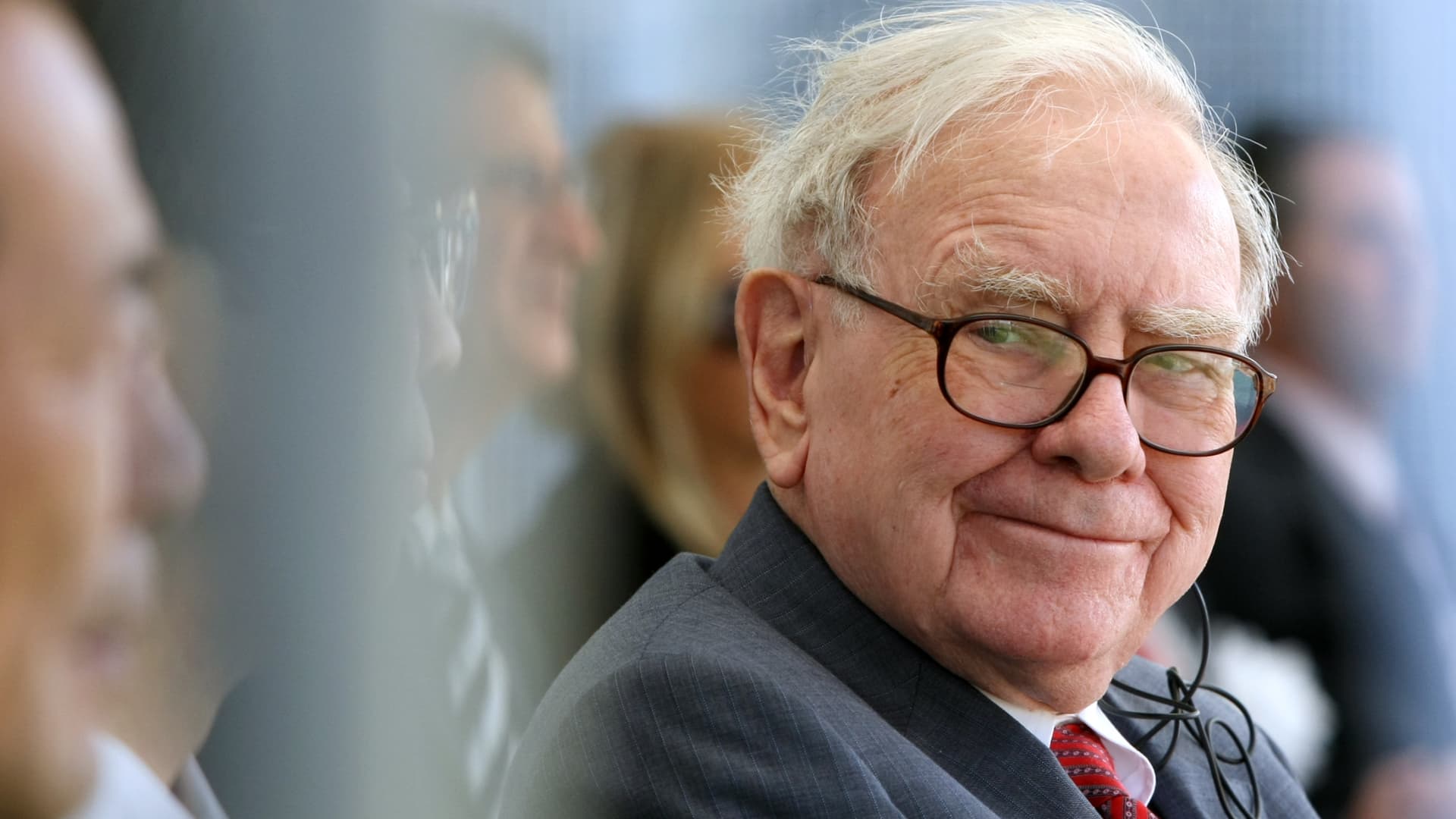Warren Buffett’s Berkshire Hathaway raised its stakes in Mitsubishi Corp., Mitsui & Co., Itochu, Marubeni and Sumitomo — all to 7.4%.
Bloomberg | Bloomberg | Getty Images
Every so often, a hot new investor on the rise is crowned “the next Warren Buffett” by the financial media, followed swiftly by disappointing performance that proves they’re no “Oracle of Omaha.” Sam Bankman-Fried, now facing criminal charges, is an extreme case.
But even beyond the disgraced founder of of the FTX crypto exchange, others have suffered the curse of being lauded as The Next Buffett. Pershing Square’s Bill Ackman, former Sear’s CEO Eddie Lampert, Social Capital’s Chamath Palihapitiya were all called “the next Warren Buffett” at one stage or another of their careers, but none of their track records comes close to matching the 92-year-old investing legend.
By now, investors can stop looking. “The next Warren Buffett” remains Warren Buffett alone.
Sui generis
Since taking control of Berkshire Hathaway in 1965, Buffett has proven himself sui generis — one of a kind, unique, in a class by himself.
What makes Buffett so hard to duplicate? His $800 billion Berkshire Hathaway conglomerate claims to have doubled the average annual return of the S&P 500 since Buffett led an investment group that first acquired a majority of Berkshire back in the LBJ years.
Today, Berkshire owns an incredible array of diverse businesses, ranging from its crown jewel GEICO insurance to BNSF Railway, from almost 6% of Apple to 100% of Dairy Queen, with lots more besides. Its balance sheet is unmatched, swelling with about $150 billion in cash. That makes Buffett, famously a student of Columbia University’s legendary value investing professor Ben Graham, the most venerated investor of his, or succeeding, generations.
“Berkshire’s economic moat is more than just a sum of its parts,” said Greggory Warren, Berkshire analyst at Morningstar. That is because of Buffett’s success at “melding the firm’s financial strength and underwriting ability with his own investment acumen,” he said.
Record high
In the midst of the Go-Go stock market of the 1960s, Buffett used an investment partnership he ran to buy what was then a struggling New England textile company. Today, Berkshire is unrecognizable from what it once was, and more successful than ever. The stock hit an all-time high just this week after Berkshire posted a record operating profit of more than $10 billion in the three months ended in June, boosted by a rebound in insurance operations.
The numbers speak for themselves. Berkshire shares have generated a 19.8% annualized gain from 1965 through 2022, doubling the 9.9% return of the S&P 500. Cumulatively, the stock has gone up 3,787,464% since Buffett took over.

Berkshire vs the S&P 500 over the past five years.
Whitney Tilson, CEO of Empire Financial Research and a Berkshire shareholder, has been calling Berkshire shares “America’s No.1 retirement stock” for years.
“It offers a unique combination of safety, growth, and undervaluation,” Tilson said, who has been attending Berkshire’s annual shareholder meetings in Nebraska for over two decades. “The stock should be the bedrock of any conservative portfolio.”
Massive cash pile
Buffett has always focused on owning large amounts of cash, comparing it to oxygen — a resource that can be deployed quickly when needed, or opportunities present themselves. He has said that large cash holdings are necessary as a duty to shareholders, because Berkshire insures people, and because he likes to retain his independence during times of turmoil.
“Many, many people … have staked their wellbeing on the promises of Berkshire to take care of them for, like I say, 50 years or longer into the future,” Buffett said during Berkshire’s 2020 annual meeting. “We always operate from a position of strength….We don’t want to be dependent on the kindness of strangers, friends, even, because there are times when money almost stops.”
The mountain of cash at Berkshire has enabled Buffett to act fast during a crisis. In 2011, Buffett injected $5 billion into beleaguered Bank of America in a major show of faith. He famously came to Goldman Sachs’ rescue with a $5 billion cash infusion after the collapse of Lehman Brothers in 2008. In 1987, he saved Salomon Brothers from a hostile takover.
“Berkshire retained and expanded the cash hoard on its Fort Knox balance sheet, allowing the unique ability to take advantage of opportunities in any downturn while virtually eliminating the risk of ruin,” said Bill Stone, chief investment officer at Glenview Trust and a Berkshire shareholder.
‘The GOAT’
Palihapitiya recently expressed his admiration, calling Buffett “the greatest of all time” after analyzing his latest bet on Japan.
The technology investor said the five Japanese trading houses Buffett invested in are good investments because they pay stable dividends and boost their earnings, at the same time as Buffett was able to hedge currency risk by selling Japanese debt, pocketing the difference between dividends collected on the investments and bond coupon payments Berkshire pays out.
“It’s inspiring to see folks act this intelligently at scale,” said Palihapitiya who, at his peak, once compared his own return with Berkshire’s.
Many Buffett watchers have marveled at the investor’s pivot to investing in Apple, which has ballooned to a $177 billion bet, the single largest holding in Berkshire’s equity portfolio.
Although Buffett has famously avoided tech stocks, and Apple is far from Buffett’s field of expertise and comfort level, he likens the iPhone maker to a consumer products company and has said he is also attracted to its big buyback programs. Apple authorized the repurchase of as much as $90 billion of common stock in both 2022 and again in 2023.
Buffett’s Apple bet has made Berkshire well over $100 billion since 2016.
The next “Oracle of Omaha,” whoever it is, can only dream of duplicating that performance.

